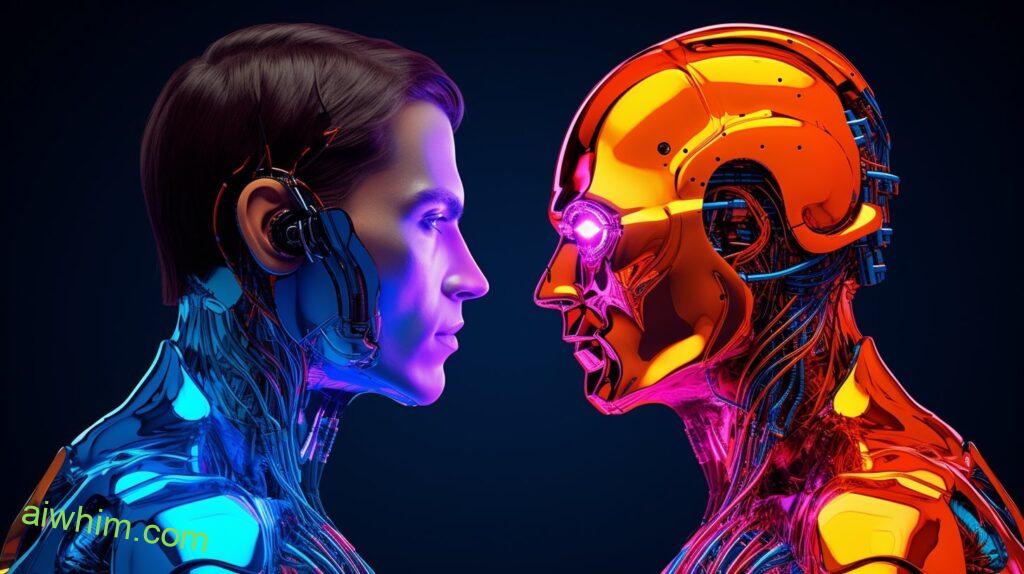This article explores the potential for chatbots and artificial intelligence (AI) to replace psychologists in the field of mental health.
It examines the rise of AI in mental health, specifically focusing on chatbots as therapy tools.
Additionally, it investigates the role of AI in psychological treatment and its benefits in providing mental health support.
The article also discusses the potential impact of AI on the psychology profession, including the evolution of psychological assessment and improvement of treatment outcomes.
Finally, it addresses the potential disruption of traditional therapy models and emphasizes embracing collaboration between chatbots and psychologists.
Key Takeaways
- AI is increasingly being implemented in mental health research, including crisis intervention, personalized therapy plans, remote therapy sessions, and mental health diagnosis.
- While AI technology cannot fully replace human therapists and their empathetic aspect of therapy, it can provide support, guidance, and immediate assistance during mental health crises.
- Ethical implications arise regarding patient autonomy, informed consent, privacy, and responsibility for AI decisions. Ethical guidelines need to be established for AI-human interactions in psychology.
- Chatbots in mental health support offer immediate and accessible assistance, reducing symptoms of depression and anxiety. They can alleviate the burden on mental health professionals and enhance accessibility, but they have limitations in providing human empathy and emotional understanding.

The Rise of AI in Mental Health
The current rise of artificial intelligence (AI) has led to its increasing implementation in the field of mental health. AI is being utilized in various aspects of mental health research, including crisis intervention, personalized therapy plans, remote therapy sessions, and mental health diagnosis.
One area where AI has shown promise is in crisis intervention. Chatbots equipped with natural language processing capabilities can engage with individuals experiencing a mental health crisis and provide immediate support. These chatbots have been found to be effective in providing empathetic responses and assisting individuals in managing their distress.
Furthermore, AI is being used to develop personalized therapy plans for individuals with mental health conditions. By analyzing large amounts of data from patients’ history and treatment outcomes, AI algorithms can identify patterns and suggest tailored interventions. This can result in more targeted and effective treatments for individuals.
In addition to this, chatbots are also being utilized for remote therapy sessions. Through text or voice-based interactions, individuals can receive therapeutic support without the need for face-to-face sessions. This makes mental healthcare more accessible to those who may have limited mobility or live in remote areas.
Lastly, AI is playing a role in mental health diagnosis by analyzing patterns from various sources such as electronic medical records and social media posts. Machine learning algorithms can identify early signs of mental illness or predict potential relapses based on these patterns.
Overall, the integration of AI into the field of mental health shows great promise for improving access to care, personalizing treatment plans, and enhancing diagnostic accuracy. However, it should be noted that while AI can augment certain aspects of mental healthcare delivery, it cannot replace the expertise and empathy provided by human psychologists.
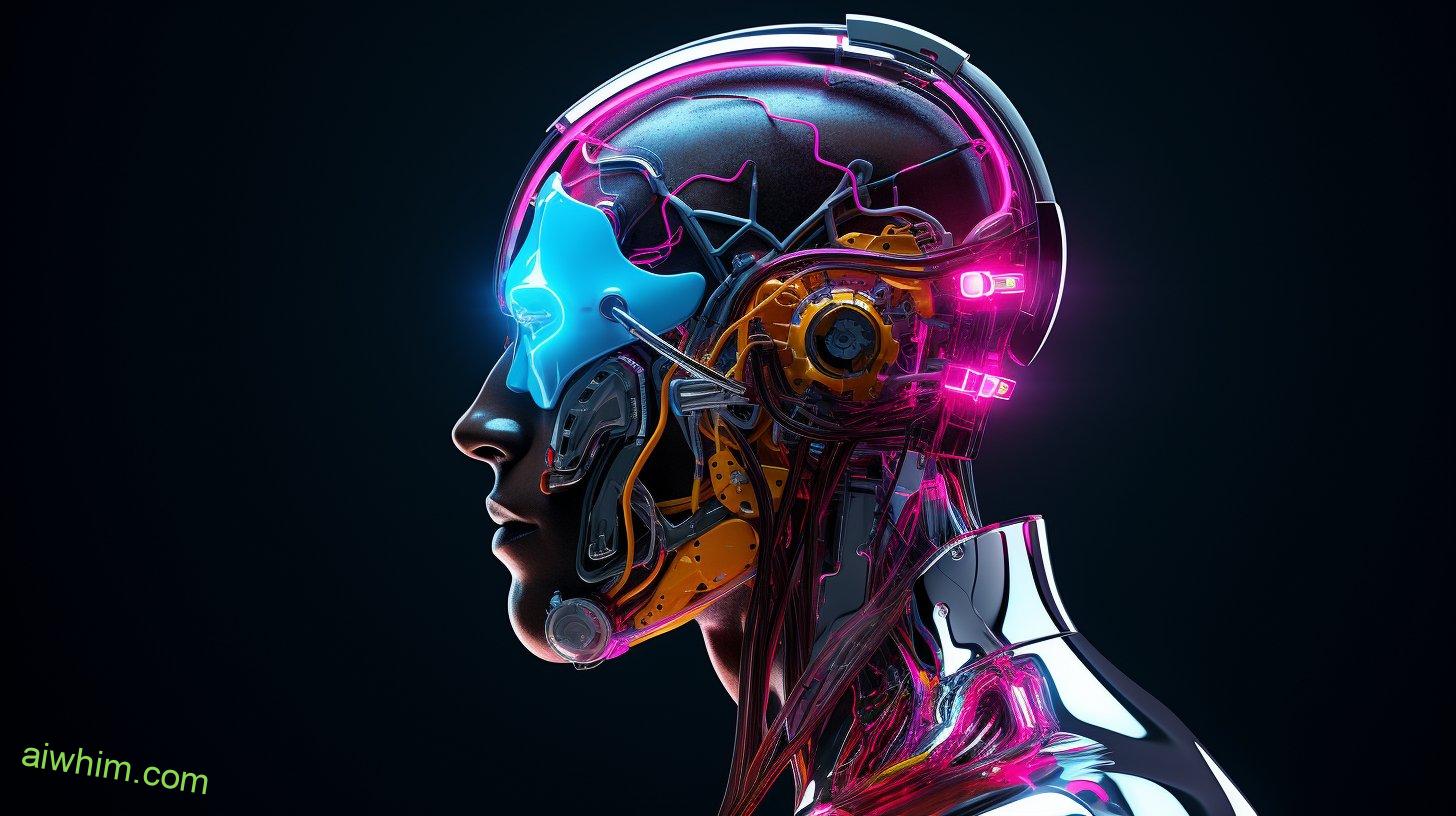
Understanding Chatbots as Therapy Tools
Understanding chatbots as therapy tools involves examining their potential benefits, limitations, and ethical considerations within the field of psychology. Chatbot limitations include their inability to provide human empathy and emotional understanding, which are crucial in therapeutic relationships. However, they can offer 24/7 accessibility and cost-effectiveness compared to traditional therapy methods. Therapist collaboration is essential for ensuring that chatbots are developed with evidence-based approaches and align with therapeutic goals. This collaboration also allows therapists to monitor and guide the chatbot’s interactions with users.
User engagement is a critical factor in the effectiveness of chatbot therapy. The design should prioritize creating an engaging user experience that encourages active participation and fosters trust. Privacy concerns arise due to the sensitive nature of mental health information shared during interactions with chatbots. Implementing robust security measures is necessary to protect user privacy and ensure compliance with data protection regulations.
Cultural sensitivity is another significant consideration when deploying chatbots as therapy tools. Cultural differences in language, customs, values, and beliefs must be considered to avoid potential misunderstandings or offense during interactions.
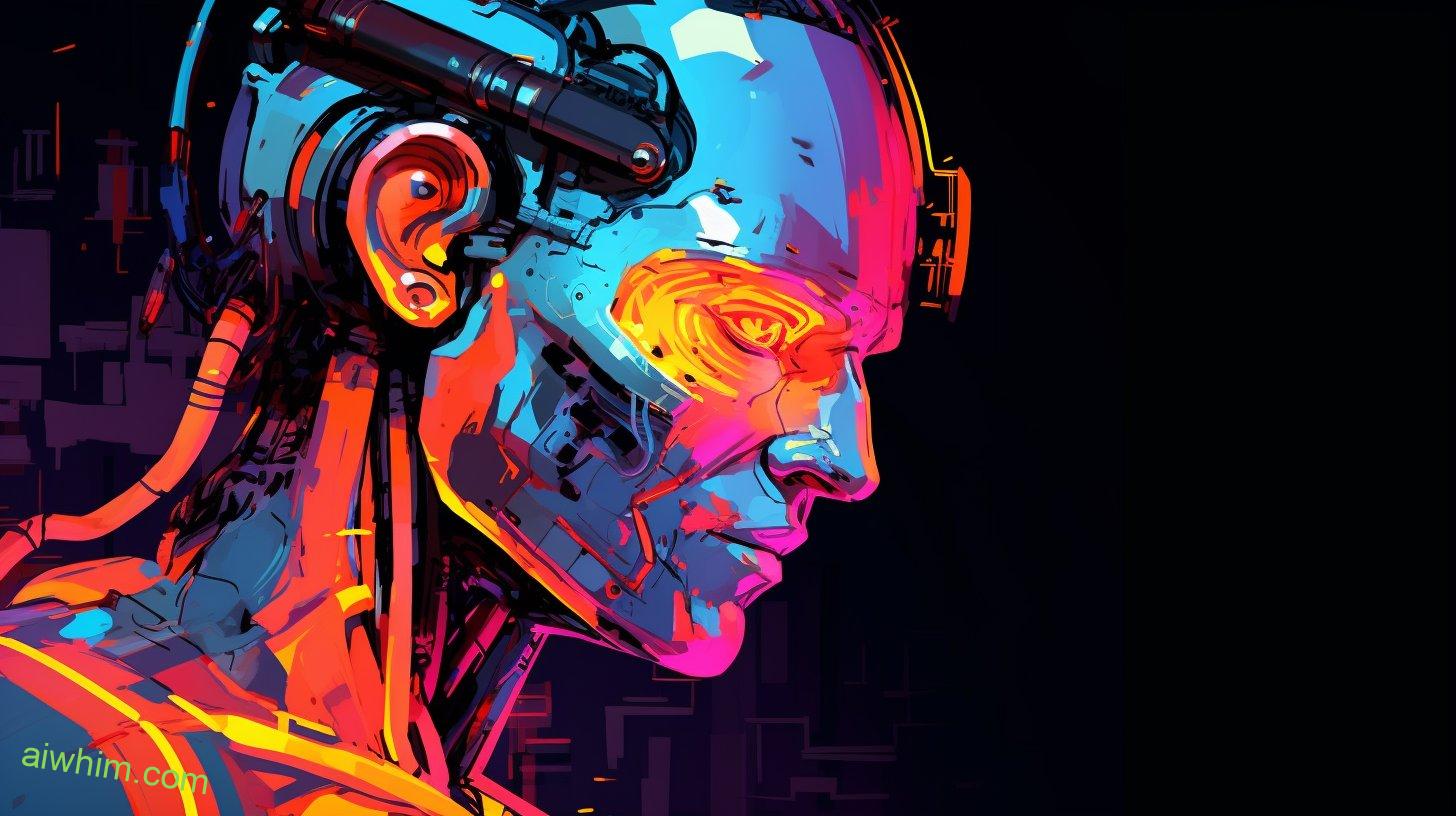
Exploring the Role of AI in Psychological Treatment
Exploring the role of AI in psychological treatment necessitates a comprehensive evaluation of its potential contributions and implications within the field. AI has the ability to bring about significant changes in the way psychological treatment is delivered, but it also raises several concerns.
- Ethical implications: The use of AI in psychology raises ethical questions regarding patient autonomy, informed consent, and the responsibility for decisions made by an AI system.
- User acceptance: Acceptance of AI-based interventions among patients and practitioners is crucial for their successful integration into psychological treatment. Factors such as trust, perceived effectiveness, and user experience play a pivotal role in determining user acceptance.
- Privacy concerns: The collection and analysis of personal data by AI systems raise privacy concerns. Safeguarding sensitive information and ensuring secure data management are essential considerations.
- Integration challenges: Integrating AI technology into existing therapeutic approaches requires careful planning and coordination. Challenges include optimal collaboration between human therapists and AI systems, training professionals to effectively utilize these tools, and addressing any resistance or skepticism from practitioners.
- Long-term effectiveness: Evaluating the long-term efficacy of AI-based interventions is necessary to ascertain their true impact on patients’ well-being. Comparative studies with traditional therapy methods can help determine if these novel approaches provide sustained benefits.
Addressing these issues will be crucial for harnessing the full potential of AI in psychological treatment while ensuring ethical practice, user acceptance, privacy protection, seamless integration, and long-term effectiveness.

The Benefits of Chatbots in Mental Health Support
One potential benefit of incorporating chatbots into mental health support is their ability to provide immediate and accessible assistance to individuals in need. Research has shown that chatbots can be effective tools in providing mental health support. Several studies have demonstrated positive outcomes when using chatbots for remote therapy, including reduced symptoms of depression and anxiety, increased self-awareness, and improved coping skills. Moreover, users generally report a positive user experience when interacting with mental health chatbots.
However, there are concerns regarding the privacy and security of personal information shared with chatbots. As these technologies continue to evolve, it is crucial to address these concerns by implementing robust privacy policies and encryption measures to protect sensitive data.
In terms of integration in healthcare systems, the use of chatbots in mental health support shows promise. They can help alleviate the burden on mental health professionals by providing initial assessments and offering resources or interventions based on individual needs. Additionally, integrating chatbot technology into existing telehealth platforms can enhance accessibility and reach for underserved populations who may not have easy access to traditional mental health services.
Overall, while there are challenges that need to be addressed, incorporating chatbots into mental health support has the potential to provide immediate assistance, improve user experience, address privacy concerns effectively, and enhance overall accessibility and efficiency within healthcare systems.
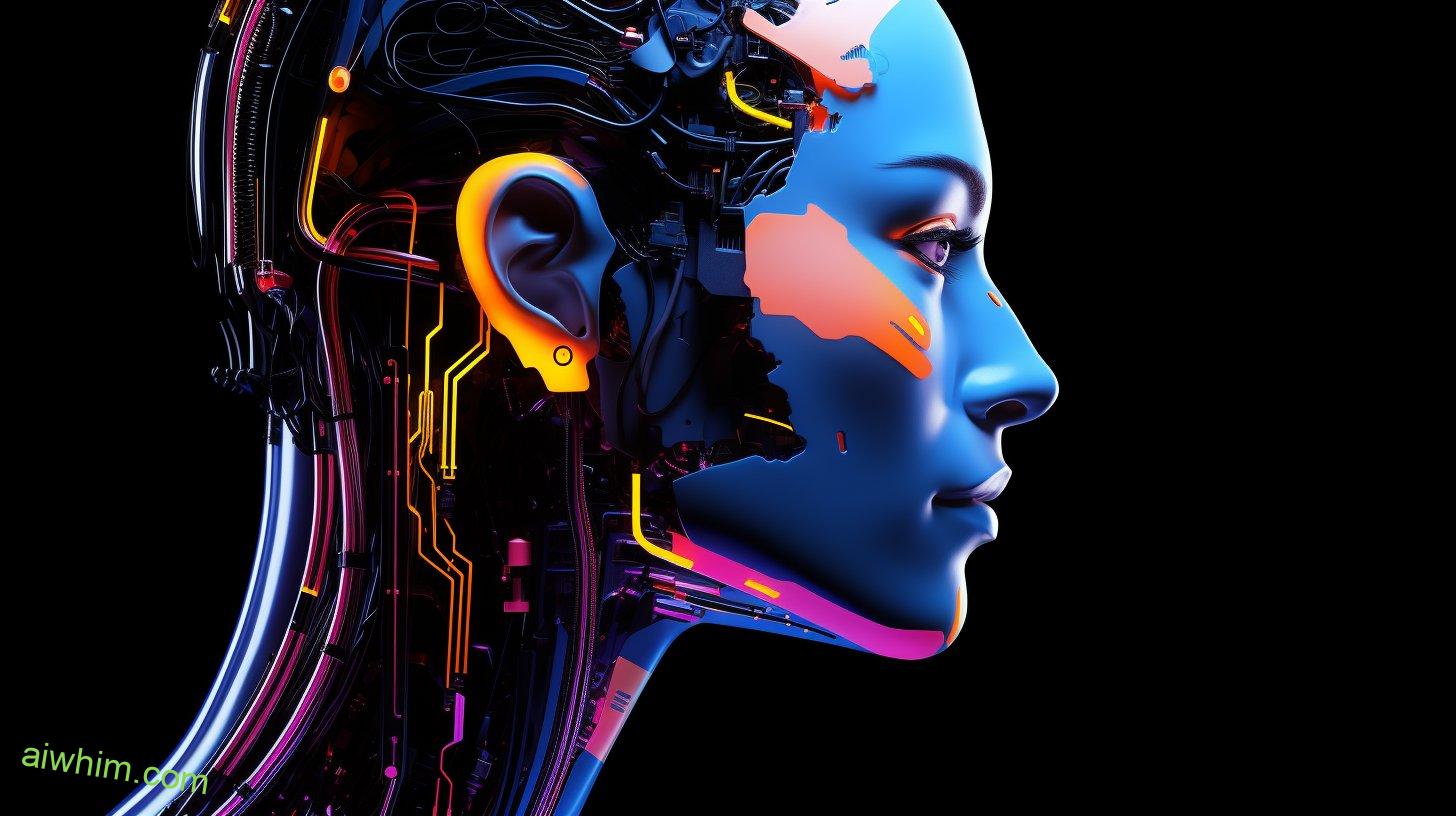
The Potential Impact of AI on the Psychology Profession
The potential impact of AI on the psychology profession lies in its ability to augment and enhance various aspects of psychological research, assessment, and treatment methods. AI has the potential to revolutionize the field by providing new tools and techniques that can aid psychologists in their work.
The limitations of AI in therapy: While AI technology can provide support and guidance to individuals seeking mental health assistance, it cannot fully replace human therapists. The empathetic aspect of therapy requires a human connection that machines are unable to replicate.
The future of psychological treatment: With advancements in AI, the future of psychological treatment may involve a combination of human therapists and AI-driven tools. This hybrid approach could allow for personalized interventions tailored to individual needs.
The role of psychologists in an AI-driven world: Psychologists will continue to play a crucial role in an AI-driven world by interpreting and applying data generated by these technologies. They will be responsible for ensuring ethical guidelines are followed while using AI tools.
The ethical implications of AI in psychology: Integrating AI into mental health research raises important ethical considerations surrounding privacy, data security, bias detection, and informed consent. It is essential for psychologists to address these concerns when implementing AI systems.
The integration of AI in mental health research: By utilizing machine learning algorithms, researchers can analyze large datasets more efficiently and identify patterns that may not be apparent through traditional methods. This integration has the potential to advance our understanding of mental health disorders and inform evidence-based interventions.
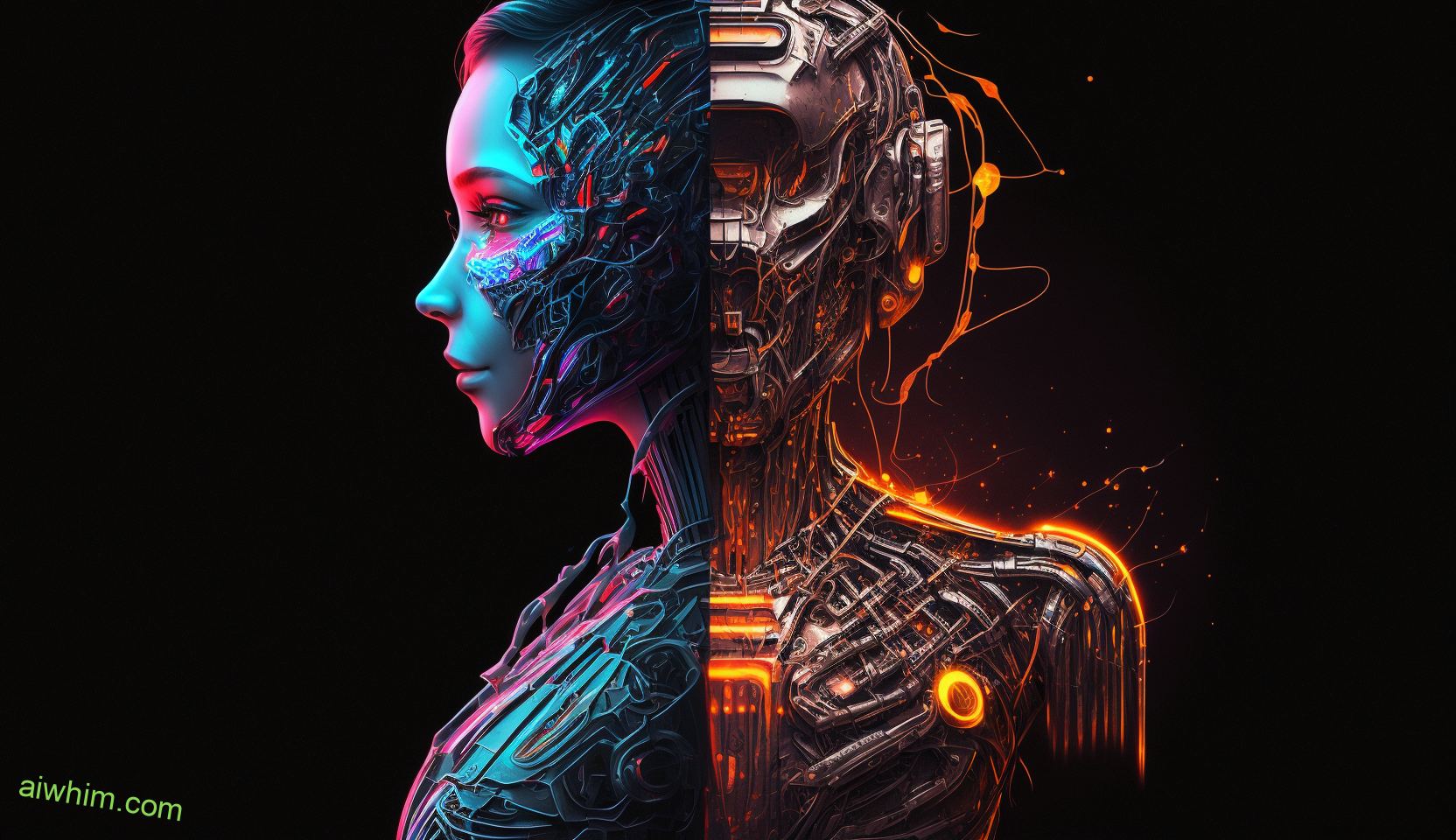
Ethical Considerations of AI in Therapy
Ethical considerations arise when integrating AI into therapy, particularly regarding issues of privacy, data security, bias detection, and informed consent. The use of AI in therapy poses various ethical implications that need to be carefully addressed.
Privacy concerns are one of the primary issues related to the integration of AI in therapy. Ensuring the confidentiality and security of patient data is crucial to maintain trust between therapists and their clients. Additionally, there is a need for robust data security measures to prevent unauthorized access or breaches.
Another important ethical consideration is the maintenance of therapeutic boundaries when using AI in therapy. It is necessary to establish clear guidelines on how AI systems should interact with patients and ensure that these interactions do not cross professional boundaries. Additionally, careful monitoring is required to detect any biases that may be present within the algorithms used by AI systems in order to avoid potential harm or unfair treatment.
Informed consent also plays a significant role in the ethical integration of AI into therapy. Patients need to be adequately informed about the use of AI technology and its limitations before engaging in therapy sessions with an AI system. This includes providing information about how their data will be used and ensuring they have a clear understanding of what they can expect from this form of treatment.
Furthermore, human-machine interaction and trust in technology are essential factors that require attention. Developing user-friendly interfaces that facilitate effective communication between patients and AI systems is crucial for successful integration. Building trust in these technologies among both therapists and clients will contribute to their acceptance and adoption within therapeutic settings.
Overall, addressing these ethical considerations surrounding privacy concerns, therapeutic boundaries, bias detection, informed consent, human-machine interaction, and trust is crucial when integrating AI into therapy. By doing so effectively, we can maximize the benefits while minimizing potential risks associated with this technological advancement.

AI and the Future of Mental Health Care
Advancements in artificial intelligence have the potential to greatly impact the future of mental health care. With the increasing accessibility and sophistication of AI technology, it is important to consider its ethical implications, privacy concerns, efficacy assessment, user acceptance, and long-term effects.
- Ethical implications: The use of AI in mental health care raises questions regarding patient autonomy, informed consent, and the responsibility of AI systems to prioritize patient well-being.
- Privacy concerns: AI systems collect and analyze vast amounts of personal data. Safeguarding this information is crucial to ensure patient confidentiality and protect against potential data breaches or misuse.
- Efficacy assessment: It is essential to evaluate the effectiveness of AI-based interventions compared to traditional therapy methods. Rigorous research studies are necessary to determine whether these technologies can provide comparable or superior outcomes.
- User acceptance: Acceptance by both patients and mental health professionals is critical for successful integration of AI in mental health care. Factors such as user interface design, ease-of-use, and trustworthiness will influence acceptance levels.
- Long-term effects: Understanding the potential long-term impacts of relying on AI for mental health care is crucial. Considerations include dependency on technology over human interaction, potential de-skilling of therapists due to reliance on automated systems, and possible unintended consequences for vulnerable populations.
Overall, while advancements in AI offer promising opportunities for improving mental health care delivery, careful consideration must be given to address ethical concerns, privacy issues, efficacy assessment procedures, user acceptance factors, and potential long-term effects.

Chatbots and the Accessibility of Mental Health Services
One area of interest in the field of mental health care is the potential impact of chatbots on improving the accessibility and availability of services. Access to mental health services can be challenging due to various factors such as cost, geographical location, and stigma associated with seeking help. Chatbots have been developed as a way to overcome these barriers by providing a convenient and accessible platform for individuals to seek support.
User experience is a crucial aspect when considering the effectiveness of chatbots in delivering mental health services. The design and interface should be user-friendly, ensuring that individuals can easily navigate through the system and receive appropriate guidance. Additionally, privacy concerns are paramount when using chatbots for sensitive matters like mental health. Ensuring secure communication channels and safeguarding personal information is essential.
Ethical implications arise when utilizing chatbots in mental health care. It is important to consider issues such as informed consent, confidentiality, and data protection. Adequate measures must be implemented to protect users’ rights and maintain professional standards.
Effectiveness evaluation plays a significant role in determining the impact of chatbots on mental health care accessibility. Assessing their ability to provide accurate information, offer appropriate interventions or referrals, and effectively address individual needs is vital for their successful integration into existing healthcare systems.

The Effectiveness of AI in Mental Health Treatment
The effectiveness of artificial intelligence (AI) in mental health treatment is a significant area of research and analysis. As AI technologies continue to advance, there is growing interest in exploring their potential applications in the field of mental health. Here are some key aspects to consider:
- Efficacy assessment: Evaluating the effectiveness of AI-based interventions requires rigorous scientific methods to determine their impact on mental health outcomes. Studies need to be conducted to compare AI interventions with traditional treatments and assess their efficacy.
- User satisfaction: Understanding how users perceive and engage with AI-based mental health tools is important for their acceptance and adoption. Factors such as user experience, ease-of-use, and perceived benefits should be considered when evaluating user satisfaction.
- Privacy concerns: With the use of AI comes the concern about privacy and data security. It is crucial to ensure that personal information shared through these platforms remains confidential and protected from unauthorized access.
While AI has shown promise in certain areas, it is also essential to examine its long-term effectiveness. Longitudinal studies can provide valuable insights into the sustainability of AI-based interventions over time.
Integration challenges: Integrating AI technologies into existing mental healthcare systems may pose various challenges, including compatibility issues, resource allocation, training requirements for professionals, and ethical considerations.
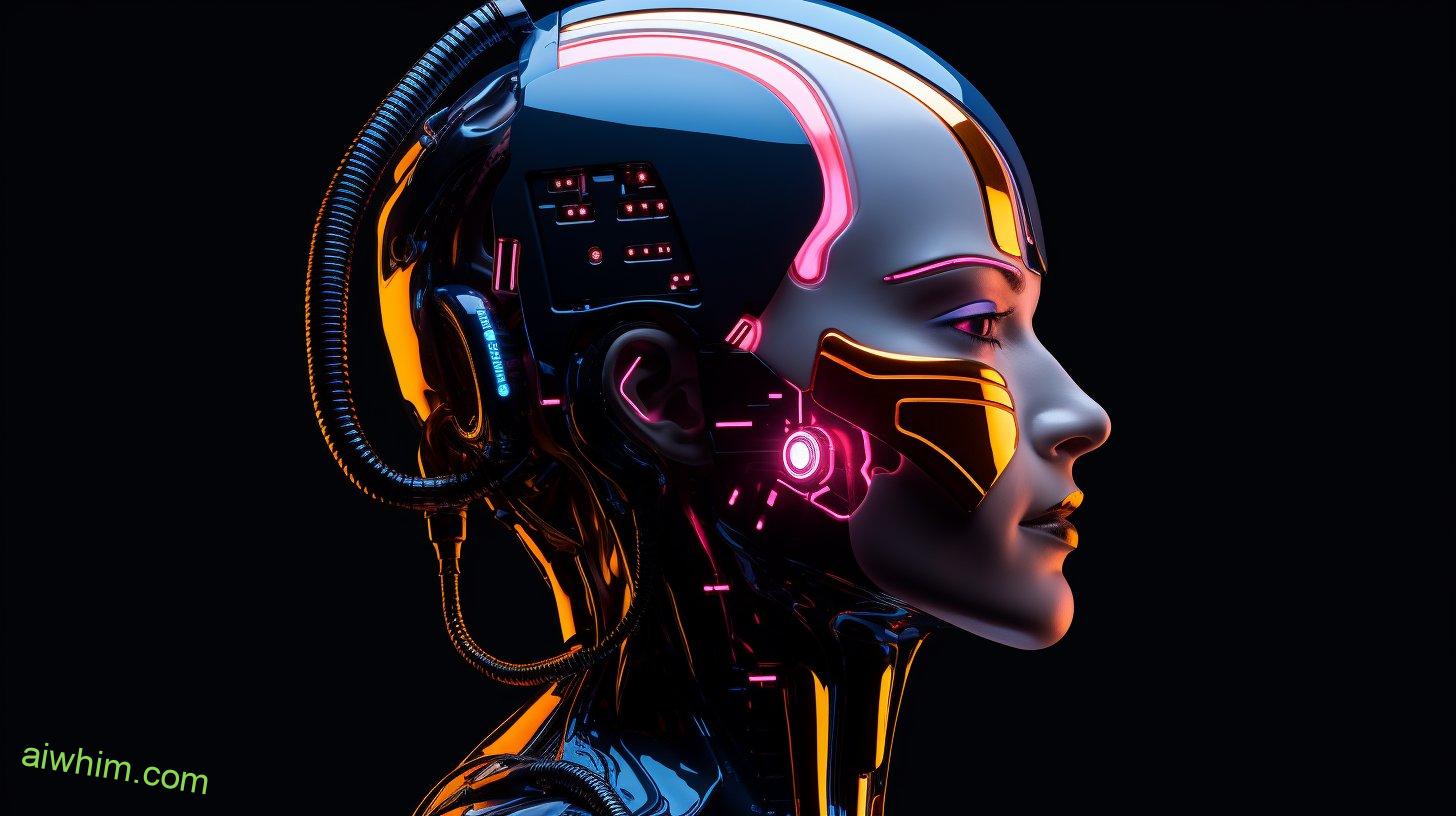
Chatbots as a Complementary Tool for Psychologists
Chatbots have been identified as a potential complementary tool for mental health professionals in providing support and resources to individuals seeking psychological assistance. However, it is important to consider the limitations of chatbots in this context.
Firstly, while chatbots can provide information and resources, their therapeutic effectiveness is still under scrutiny. Research suggests that while some individuals may find comfort in interacting with a chatbot, others may prefer human interaction for more personalized and empathetic support.
Additionally, privacy concerns arise when using chatbots for mental health support. Users may be hesitant to share sensitive information with a machine due to fears of data breaches or lack of confidentiality.
User engagement is another challenge faced by chatbots in this domain. Without proper design and continuous improvement, users may lose interest or feel disconnected from the conversation, hindering the potential benefits they could receive from the interaction.
Lastly, integrating chatbot technology into existing mental health systems poses its own set of challenges such as ensuring compatibility and seamless integration with electronic medical records or other digital platforms used by mental health professionals.
Overall, while chatbots have the potential to complement traditional therapy approaches, these limitations must be addressed for optimal utilization and efficacy in supporting individuals’ mental health needs.
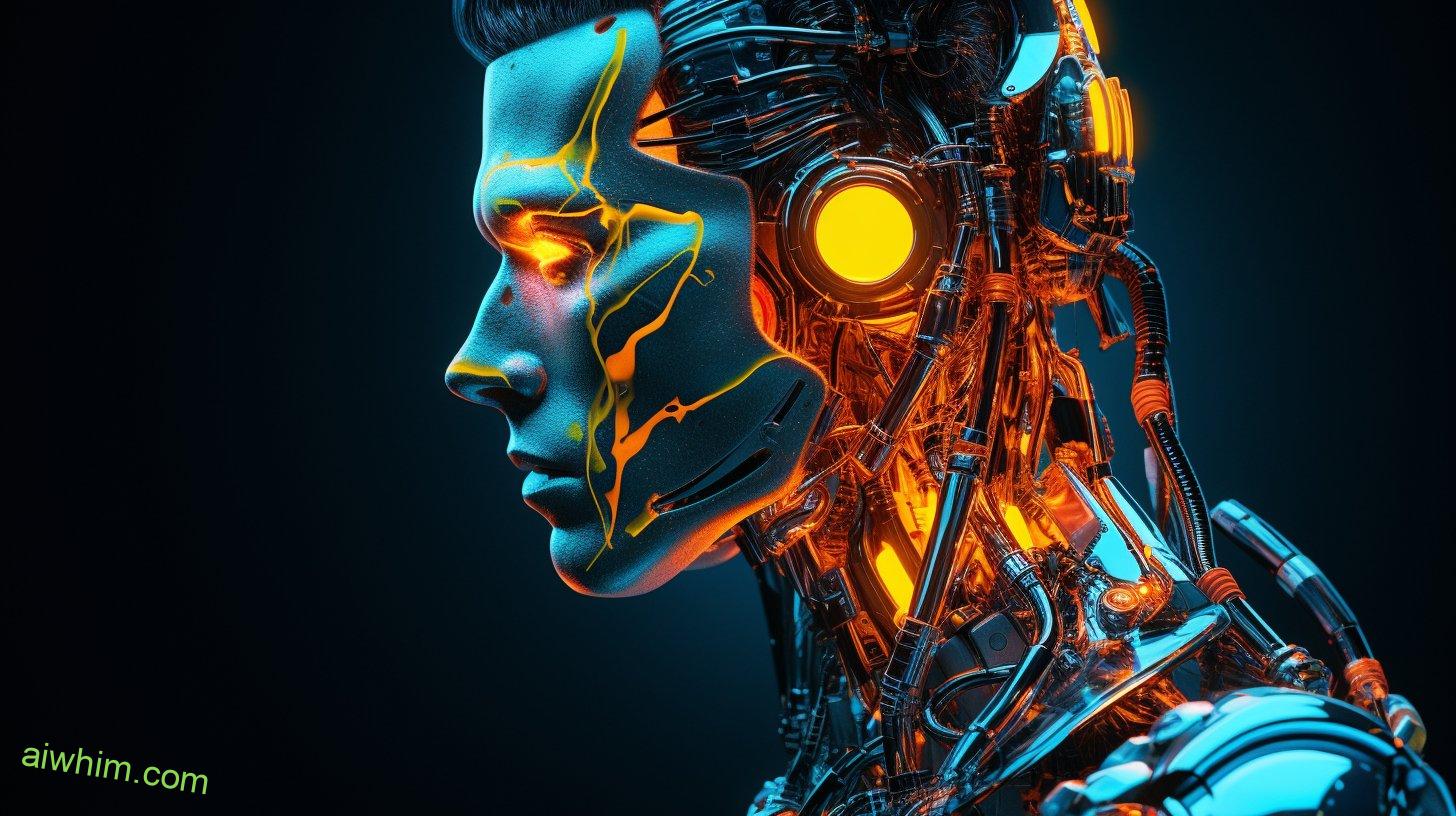
AI and the Personalization of Therapy
AI technology has the potential to enhance therapy by tailoring treatment plans to individuals’ specific needs and preferences. Personalized interventions can be achieved through AI-driven therapy, which utilizes advanced algorithms to analyze vast amounts of data and provide targeted recommendations. This approach allows therapists to develop treatment plans that address the unique circumstances of each patient, leading to more effective outcomes.
In addition to personalized interventions, AI-powered counseling can also offer virtual support groups, enabling individuals with similar challenges to connect and share their experiences. These virtual communities provide a sense of belonging and emotional support, which is crucial for individuals seeking therapy. Moreover, AI technology can continuously monitor an individual’s progress during therapy sessions, making real-time adjustments as needed.
The integration of AI into therapy has the potential to significantly improve emotional well-being. By harnessing the power of machine learning and natural language processing, AI systems can analyze patterns in speech or text data to identify signs of distress or mental health issues. This early detection enables timely intervention and prevention of further deterioration.
Overall, AI technology holds great promise in personalizing therapy interventions, offering virtual support groups, monitoring progress in real-time, and improving emotional well-being through early detection. However, it is important to note that while AI can enhance therapeutic practices, it cannot replace human interaction entirely; rather it should be seen as a valuable tool that complements traditional forms of therapy.

The Role of AI in Early Intervention and Prevention
Early intervention and prevention in the field of therapy can be significantly enhanced through the integration of advanced AI technology.
Early intervention strategies and prevention initiatives play a crucial role in managing mental health conditions, as they aim to identify and address issues at their earliest stages, preventing them from escalating into more severe problems. AI-driven prevention programs have emerged as promising tools in this regard.
AI technology can assist in identifying individuals who are at risk of developing mental health issues through early detection algorithms that analyze various data sources such as social media activity, physiological data, and self-reported symptoms. By utilizing machine learning techniques, these programs can accurately predict the likelihood of someone developing a mental health condition.
Furthermore, AI can support early intervention programs by providing personalized treatment plans based on individual needs and preferences. This technology has the potential to deliver interventions remotely, making therapy more accessible to those who may not have easy access to traditional face-to-face sessions.
The role of technology in prevention is significant as it enables timely identification and intervention before symptoms worsen or become chronic. However, it is important to recognize that while AI can enhance early intervention strategies and prevention initiatives, it should not replace human therapists entirely. The integration of AI with human expertise allows for a comprehensive approach that combines the benefits of technological advancements with the unique insights and empathy provided by trained professionals.

The Impact of AI on Therapeutic Relationships
In considering the future of therapy, it is essential to examine the impact of AI on therapeutic relationships. One crucial aspect of these relationships is therapeutic rapport, which refers to the trust and connection established between therapists and clients. While AI may provide valuable assistance in various aspects of therapy, its ability to develop and maintain therapeutic rapport remains a topic of debate.
Several key points can be made about the impact of AI on therapeutic relationships:
- AI and Therapeutic Rapport: The use of AI in therapy raises questions about whether chatbots or virtual assistants can establish meaningful connections with clients that parallel those formed through human interaction.
- The Role of Empathy in Therapy: Empathy plays a vital role in establishing a strong therapeutic relationship. While AI may be programmed to simulate empathy, its ability to genuinely understand and respond empathetically to complex emotions is still limited.
- AI and Personalized Treatment Plans: A significant advantage of using AI in therapy is its potential for developing personalized treatment plans based on vast amounts of data. However, ethical considerations must be carefully addressed when determining how much decision-making power should be given to algorithms in tailoring treatment plans.
As we delve into the implications of incorporating AI into therapeutic relationships, it becomes crucial to consider both the benefits and ethical concerns associated with this emerging technology.
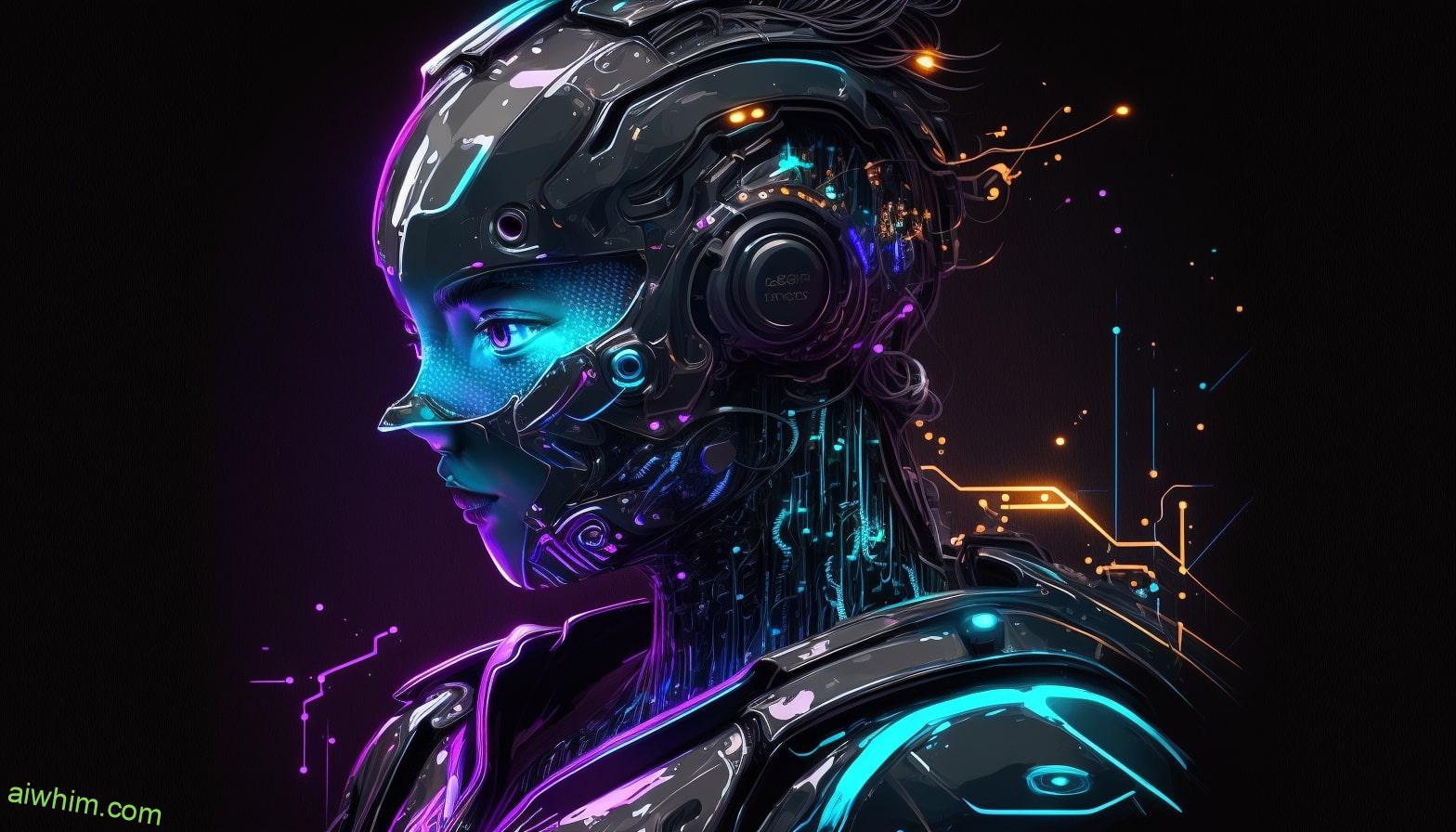
The Limitations of Chatbots in Mental Health Support
One area of concern in the use of chatbots for mental health support is their limited capacity to understand and respond appropriately to complex emotional experiences. While chatbots can provide basic information and guidance, they lack the ability to empathize with individuals or comprehend nuanced emotions. This limitation hinders their effectiveness in providing meaningful support to those experiencing mental health challenges.
In terms of accessibility, chatbots have the potential to reach a wide audience due to their availability on various digital platforms. They can provide immediate responses and operate on a 24/7 basis, offering convenience for users seeking support outside traditional office hours. However, this accessibility may also lead to over-reliance on chatbots as a substitute for human interaction, potentially neglecting the importance of face-to-face therapeutic relationships.
Ethical considerations arise when using chatbots for mental health support. Privacy and confidentiality are crucial aspects that need careful management in order to protect user information from unauthorized access or breaches. Additionally, there is an ethical responsibility to ensure that vulnerable individuals receive appropriate care and are not harmed by inadequate or inaccurate responses from chatbot programs.
The impact of relying solely on chatbots for mental health support should be carefully evaluated. While they can offer initial guidance or resources, it is important not to underestimate the value of human connection and expertise in navigating complex emotional experiences. The limitations of chatbots highlight the need for a balanced approach that combines technological advancements with human involvement in mental health support services.
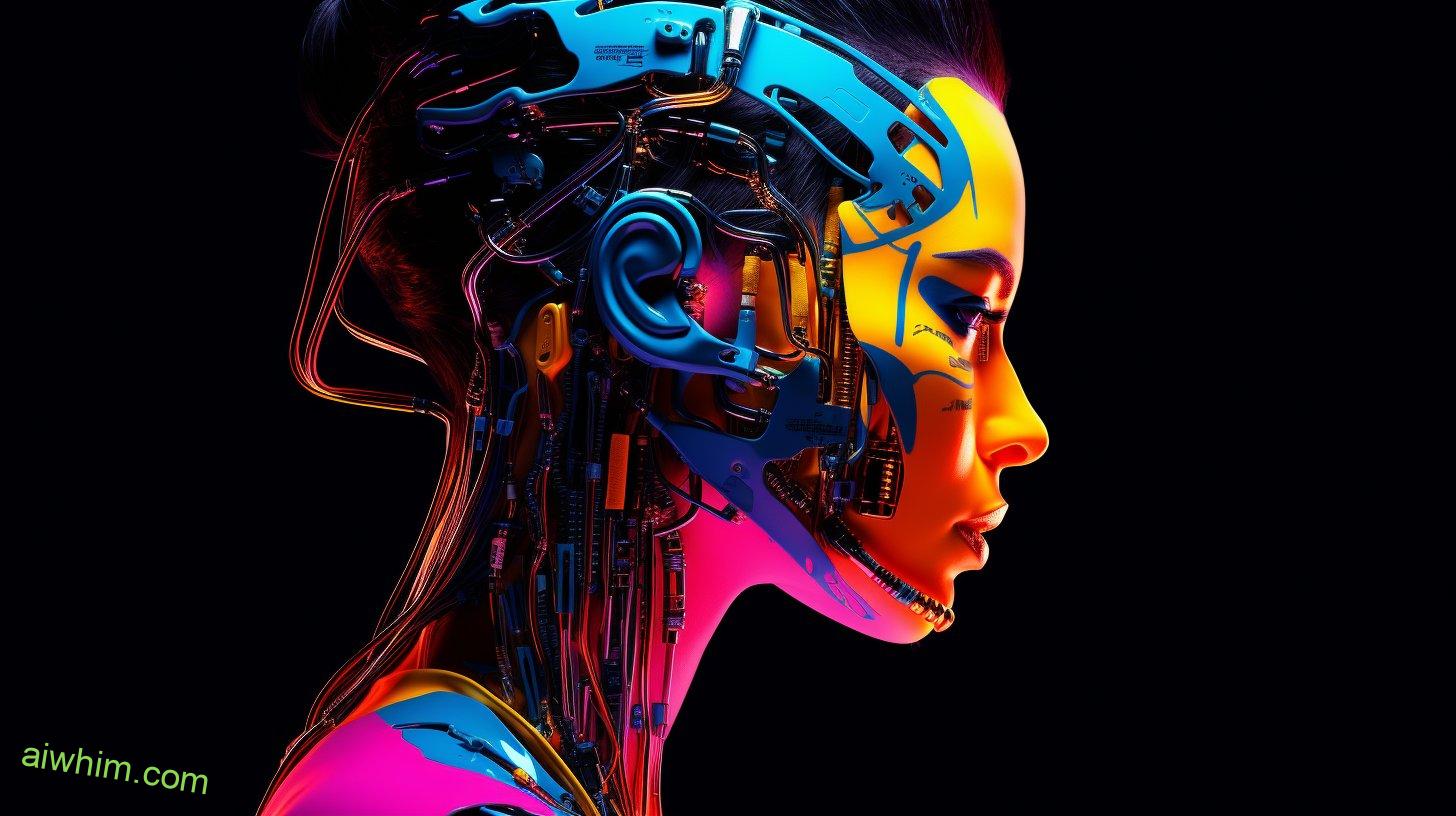
Chatbots and the Integration of Technology in Therapy
The integration of technology in therapy has the potential to enhance treatment outcomes and improve accessibility for individuals seeking mental health support.
This includes the use of chatbots, which are computer programs designed to simulate conversation with human users. While chatbots offer several benefits in therapy, there are also important ethical implications and privacy concerns to consider.
- Ethical implications: The use of chatbots raises questions about informed consent, as patients may not fully understand that they are interacting with a machine rather than a human therapist. Additionally, chatbots may lack the ability to provide appropriate emotional support and empathy that is essential in therapeutic settings.
- Privacy concerns: Chatbot interactions involve sharing personal and sensitive information, raising concerns about data security and confidentiality. It is crucial to ensure that proper safeguards are in place to protect user privacy and prevent unauthorized access or use of this information.
- Therapist-patient relationship: The introduction of chatbots can potentially impact the therapeutic alliance between therapists and their patients. The absence of a human therapist may lead to feelings of detachment or dissatisfaction among some users, affecting the quality of engagement and trust within the therapeutic relationship.
While user satisfaction with chatbot-based therapy can vary, it is essential to evaluate long-term effectiveness before widespread adoption. Further research is needed to determine whether chatbots can effectively address complex mental health issues over extended periods and provide ongoing support beyond initial interventions.
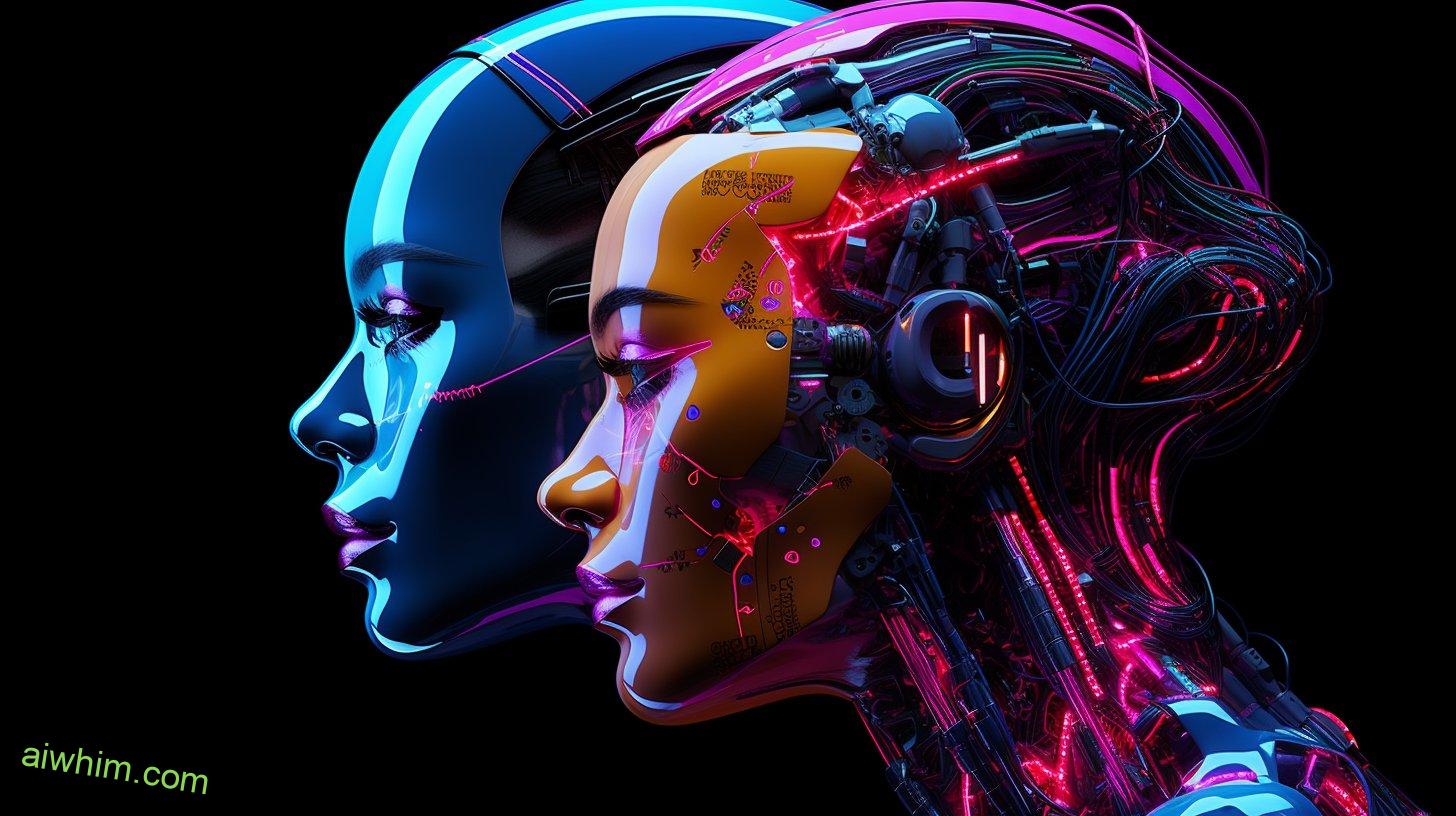
The Importance of Human Touch in Psychological Treatment
Psychological treatment relies on the incorporation of human touch to establish a strong therapeutic alliance and foster a sense of trust and connection between the therapist and client. Human connection plays a crucial role in therapy, as it provides emotional support and facilitates the development of a therapeutic relationship.
The therapy relationship is built upon empathetic understanding, where the therapist strives to comprehend the client’s experiences and emotions.
The use of nonverbal cues also contributes to effective psychological treatment. Nonverbal communication, such as facial expressions, body language, and touch, can convey empathy, reassurance, and comfort. These cues help create an environment where clients feel safe expressing their thoughts and feelings.
While technology has advanced in recent years with the integration of chatbots and artificial intelligence (AI) in various domains, it cannot fully replace the importance of human touch in psychological treatment. Chatbots may provide information or support in certain situations but lack the ability to establish genuine emotional connections that promote healing.
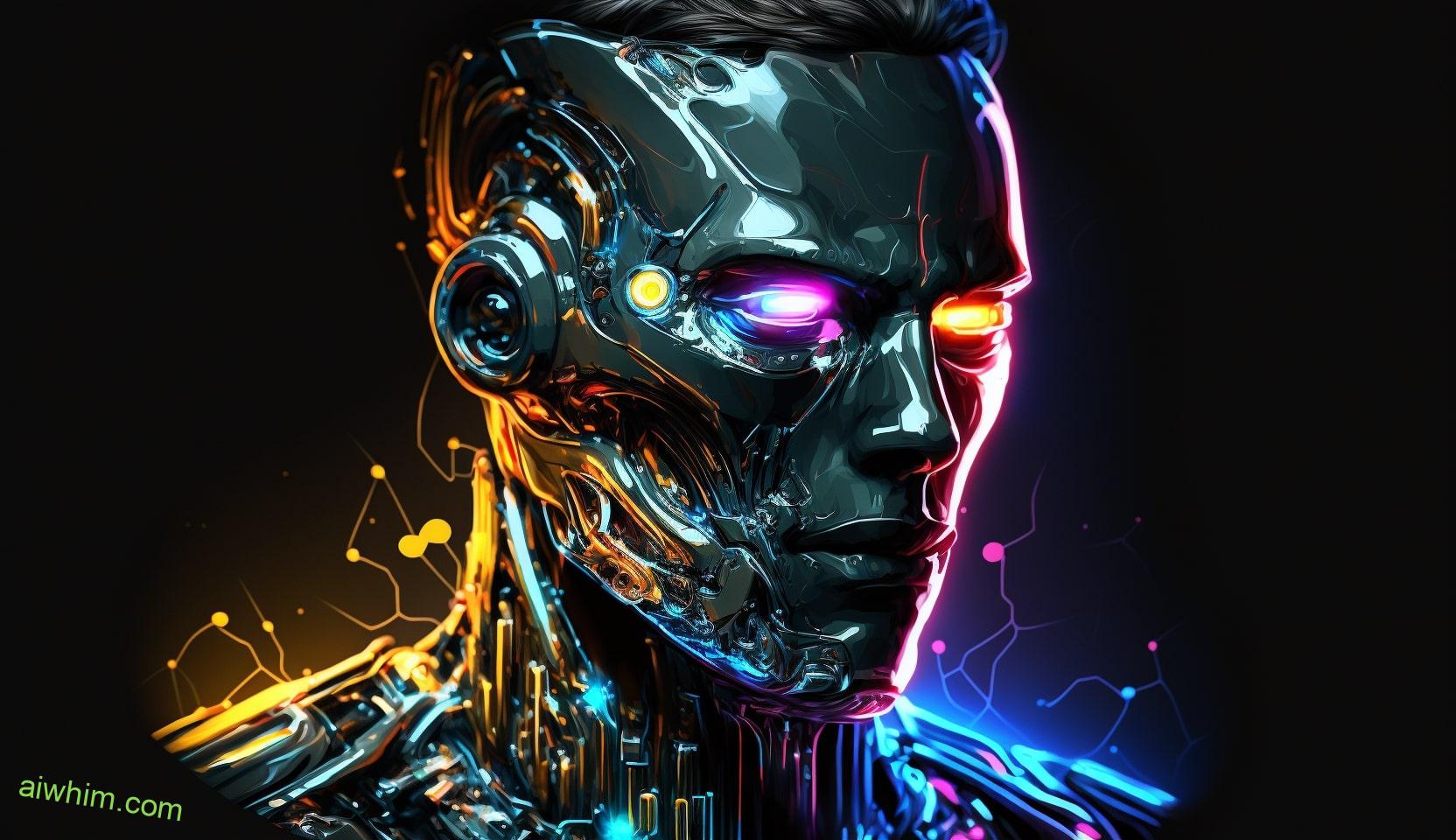
AI and the Expanding Scope of Mental Health Services
AI technology has increasingly expanded the scope of mental health services, allowing for innovative approaches to diagnosis, treatment, and support. This advancement in technology has led to several key developments in the field:
- Expanding Reach: AI-powered platforms can reach a larger population by providing accessible mental health resources online. This eliminates geographical barriers and allows individuals in remote areas or with limited mobility to access support.
- Personalized Support: AI algorithms can analyze vast amounts of data and provide personalized recommendations based on individual needs. This tailoring of treatment plans can lead to more effective interventions and improved outcomes.
- Ethical Implications: The use of AI in mental health raises ethical concerns regarding privacy, data security, and potential biases in algorithm design. Striking a balance between technological advancements and safeguarding user rights is crucial to ensure ethical practice.
Technological advancements continue to shape the landscape of mental health services, but it is essential to consider user satisfaction when implementing AI technologies. User feedback should be actively sought throughout the development process to ensure that these innovations meet their specific needs and improve overall user satisfaction.
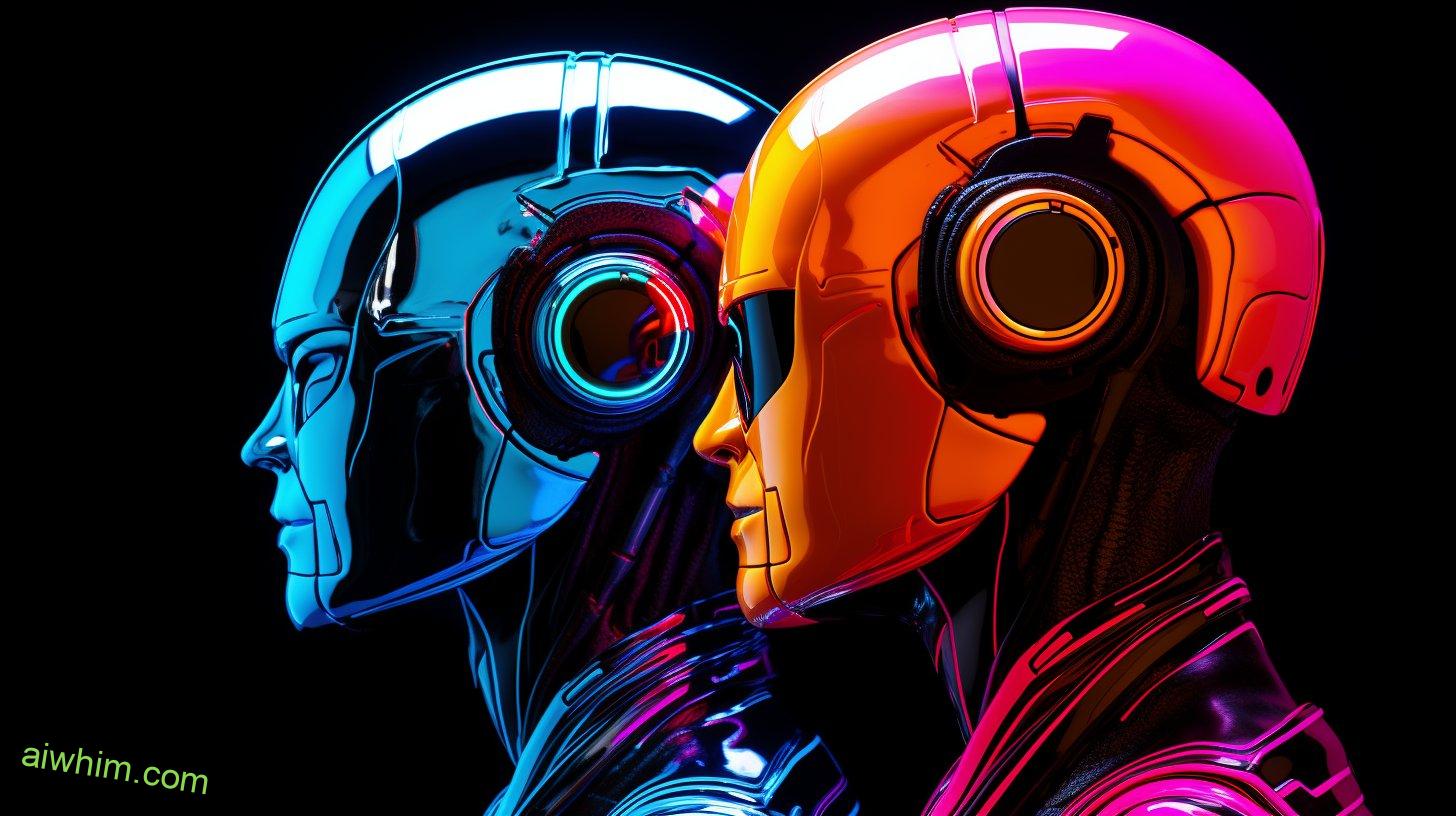
Chatbots and the Standardization of Treatment Approaches
Chatbots have the potential to standardize treatment approaches in mental health by providing consistent and evidence-based interventions. This standardization offers several benefits. Firstly, it ensures that every patient receives the same level of care, regardless of their location or the availability of mental health professionals in their area. By following established treatment protocols, chatbots can promote consistency in the delivery of interventions and reduce variability in outcomes. Moreover, standardized approaches help establish best practices based on empirical evidence, ensuring that treatments are grounded in scientific research.
However, there are ethical considerations associated with the use of chatbots for mental health treatment. The impersonal nature of these interventions raises concerns about privacy and confidentiality. Additionally, there is a risk that relying solely on automated systems may dehumanize therapy and neglect the importance of human connection.
In terms of accessibility impact, chatbots can improve access to mental health services by providing round-the-clock support and reducing waiting times for appointments. They can also be more cost-effective compared to traditional therapy sessions.
While chatbots offer many benefits in terms of standardization and accessibility, their effectiveness may be limited in certain cases. Some individuals may require more personalized interventions that take into account their unique circumstances and needs. Therefore, it is important to strike a balance between standardized approaches and individualized care when using chatbots for mental health treatment.

The Need for Continued Human Involvement in Therapy
The previous subtopic explored the potential standardization of treatment approaches through the use of chatbots in therapy. However, it is important to consider the need for continued human involvement in therapy and the value that it brings to the therapeutic process.
Human therapists possess empathy, which allows them to understand and connect with clients on an emotional level. The therapeutic alliance between a client and therapist is essential for effective treatment outcomes, as it fosters trust, collaboration, and open communication.
Personalized treatment plans are tailored to individual needs and circumstances, taking into account unique factors such as cultural background, personal history, and specific goals.
While chatbots may offer convenience and accessibility, they lack the capacity for emotional connection and understanding that human therapists provide. Empathy plays a crucial role in therapy by providing validation, support, and encouragement. Furthermore, developing a strong therapeutic alliance with a trained professional enhances treatment effectiveness by creating a safe space for exploration and growth.
Thus, continued human involvement remains indispensable in delivering personalized care that addresses the complex nuances of each individual’s mental health journey.

AI and the Enhancement of Self-Help Resources
One potential area of exploration in mental health treatment involves examining how artificial intelligence (AI) can be integrated into self-help resources to enhance their effectiveness. AI has the potential to revolutionize the field of self-help by providing accessible and personalized support for individuals seeking mental wellness. Self-help chatbots, powered by AI algorithms, have emerged as a promising tool in this regard.
Self-help chatbots utilize natural language processing and machine learning techniques to interact with users and provide guidance based on their inputs. These chatbots can offer information about various mental health conditions, coping strategies, and therapeutic interventions. They can also provide emotional support through empathetic responses and active listening features.
By integrating AI into self-help resources, individuals have the opportunity to access immediate assistance regardless of time or location. AI-powered chatbots can deliver evidence-based information reliably and consistently, reducing reliance on limited availability of human therapists. Furthermore, they enable anonymity and privacy, facilitating a safe space for individuals who may feel hesitant or stigmatized seeking traditional therapy.
However, it is important to acknowledge that while AI holds promise in enhancing self-help resources, it should not replace human involvement entirely. Human therapists bring unique qualities such as empathy, intuition, and contextual understanding that are fundamental to effective therapy. Therefore, a hybrid approach that combines both AI-driven self-help resources with human interaction seems most beneficial for promoting mental wellness.

Chatbots and the Reduction of Stigma Around Mental Health
Utilizing AI-driven self-help resources in the field of mental health has the potential to significantly contribute to the reduction of stigma surrounding seeking assistance for mental well-being. These resources, such as chatbots, offer a range of benefits that help individuals overcome barriers and engage with mental health support in a personalized and convenient manner.
- Reducing stigma: Chatbots provide an anonymous and non-judgmental platform for users to seek help without fear of being stigmatized or discriminated against by others.
- User engagement: With their interactive nature, chatbots can effectively engage users in conversations about their mental health, offering a sense of understanding and empathy that encourages openness and disclosure.
- Personalized support: By utilizing artificial intelligence algorithms, chatbots can tailor their responses based on individual needs and preferences, providing personalized recommendations and guidance for improving mental well-being.
Furthermore, chatbots offer 24/7 availability, allowing users to access support whenever they need it. This accessibility eliminates traditional barriers associated with scheduling appointments or geographical limitations. Additionally, concerns about data privacy are addressed through secure platforms that adhere to strict confidentiality protocols.

The Evolution of Psychological Assessment With AI
An evolution in psychological assessment has occurred with the incorporation of AI, which has introduced new possibilities for gathering and analyzing data in a more efficient and accurate manner. AI-powered assessments have demonstrated potential in various areas of mental health diagnosis and treatment. Machine learning algorithms are being employed to analyze large datasets, enabling clinicians to identify patterns and make more precise diagnoses. Automated therapy interventions have also emerged with the use of AI, providing individuals with immediate access to support systems through chatbots or virtual assistants. These interventions can offer personalized therapeutic techniques that are tailored to individual needs.
Furthermore, AI-driven personalized treatment plans are being developed based on an individual’s specific symptoms and circumstances. By utilizing machine learning algorithms, these plans can adapt over time as new data is collected during therapy sessions. Additionally, the integration of virtual reality technology into therapy sessions has shown promise in creating immersive environments that can help individuals confront their fears or traumatic experiences.
Overall, the use of AI in psychological assessment has opened up new avenues for understanding and treating mental health conditions. While it cannot replace human expertise and empathy entirely, it offers opportunities for more efficient data analysis, automated interventions, personalized treatment plans, and innovative therapy techniques such as virtual reality integration.
Continued research and development in this field will likely lead to further advancements in psychological assessment practices.

AI and the Improvement of Treatment Outcomes
The improvement of treatment outcomes has been facilitated by the integration of AI in psychological assessment, as it enables clinicians to develop personalized and adaptive treatment plans based on an individual’s specific symptoms and circumstances. This advancement in technology has brought about several positive changes in the field of psychology.
- Personalized Interventions: AI allows for the development of personalized interventions that take into account an individual’s unique characteristics, preferences, and needs. By analyzing vast amounts of data, AI algorithms can identify patterns and tailor treatment plans accordingly.
- Data Analysis: AI tools can analyze large datasets quickly and accurately, providing valuable insights that can inform treatment decisions. This enhances the ability to identify effective interventions and improve treatment efficacy.
- Treatment Efficacy: The use of AI in psychological assessment contributes to improved treatment outcomes by enhancing clinicians’ ability to select appropriate interventions based on empirical evidence. This leads to more targeted treatments with higher chances of success.
While there are numerous benefits associated with integrating AI into psychological assessment, it is crucial to consider ethical implications and user satisfaction. Ensuring privacy protection, maintaining transparency regarding data usage, and addressing potential biases are some important aspects that need careful consideration when implementing these technologies in clinical practice.
Nonetheless, the integration of AI holds significant promise for advancing personalized interventions and optimizing treatment outcomes in psychology.
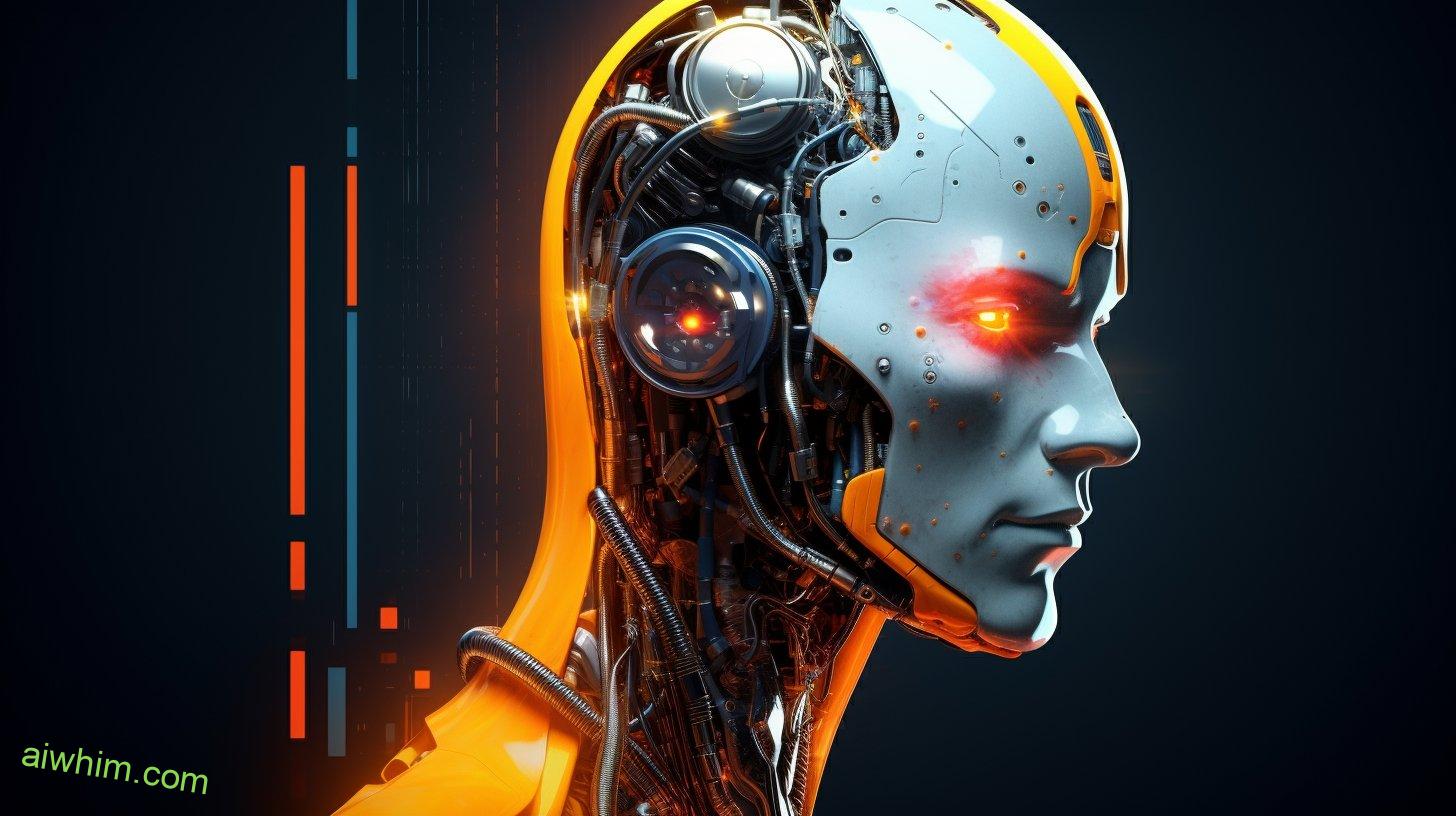
The Potential Disruption of Traditional Therapy Models
The improvement of treatment outcomes through the use of AI in therapy raises potential risks and ethical implications that could disrupt traditional therapy models. One significant concern is the impact on the therapist-patient relationship. While chatbots and AI can provide immediate responses and round-the-clock availability, they lack the human empathy, intuition, and non-verbal cues that are integral to building a therapeutic alliance. This impersonal nature of AI may hinder trust-building and limit the depth of emotional connection between therapists and patients.
Furthermore, relying heavily on technology in therapy has future implications for mental healthcare. As technological advancements continue, there is a possibility that AI-powered platforms could replace therapists altogether. This raises questions about accessibility, as not everyone may have access to these technologies or feel comfortable using them.
Ethically, concerns arise regarding data privacy and security when sensitive personal information is shared with AI systems. Additionally, biases present in the algorithms used by chatbots could perpetuate discrimination or reinforce harmful stereotypes.
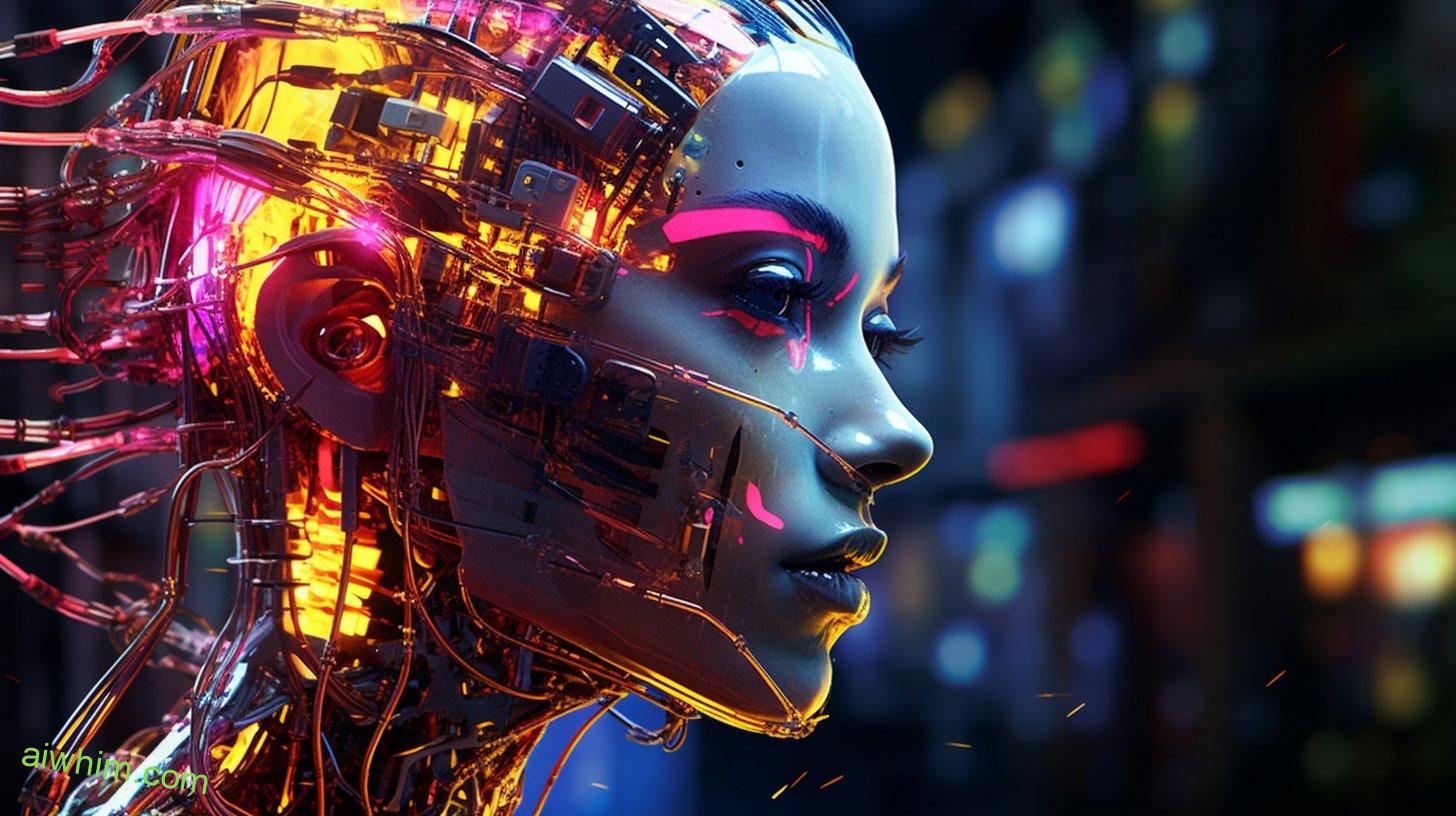
Embracing the Collaboration Between Chatbots and Psychologists
Embracing the collaboration between chatbots and psychologists can potentially enhance therapy outcomes by complementing human expertise with AI technology. This collaborative approach combines the innovative solutions provided by chatbots with the knowledge and experience of psychologists, resulting in a more comprehensive therapeutic process.
- Digital support: Integrating chatbots into therapy sessions offers digital support to individuals seeking mental health assistance. Chatbots can provide immediate responses and guidance, ensuring that individuals have access to support whenever they need it.
- Therapeutic benefits: Chatbots can assist psychologists in monitoring patients’ progress between sessions, providing personalized recommendations based on their input. This continuous support enhances the effectiveness of therapy and reinforces positive behavioral changes.
- Technology integration: Incorporating AI technology into therapeutic settings allows for data collection and analysis on a large scale. Psychologists can use this information to gain insights into patterns, trends, and treatment efficacy, leading to improved therapeutic interventions.

Frequently Asked Questions
Can Chatbots Completely Replace Psychologists in the Field of Mental Health?
Can chatbots effectively replace psychologists in mental health? While chatbots have limitations, they offer benefits such as accessibility and anonymity. However, concerns about privacy and the lack of human connection remain significant factors to consider.
How Do Chatbots Work as Therapy Tools?
Chatbots work as therapy tools by offering benefits such as accessibility, anonymity, and cost-effectiveness. However, limitations include the lack of human empathy and inability to handle complex mental health issues. Research on user experience and future development is necessary for their effective implementation in mental health care.
What Are the Ethical Considerations When Using AI in Therapy?
Ethical considerations when using AI in therapy include privacy concerns, potential biases, therapeutic boundaries, data security, and patient autonomy. These factors must be carefully addressed to ensure the responsible and ethical use of AI in therapy.
How Does the Integration of Technology in Therapy Affect the Effectiveness of Chatbots?
The integration of technology in therapy, specifically the use of chatbots, has potential implications for the effectiveness of treatment. Understanding how this integration impacts therapy outcomes requires further investigation and consideration of various factors.
What Is the Impact of AI on the Therapeutic Relationship Between Psychologists and Patients?
The impact of AI on the therapeutic relationship between psychologists and patients is evident in its effects on trust, patient engagement, therapeutic alliance, emotional connection, and treatment outcomes.
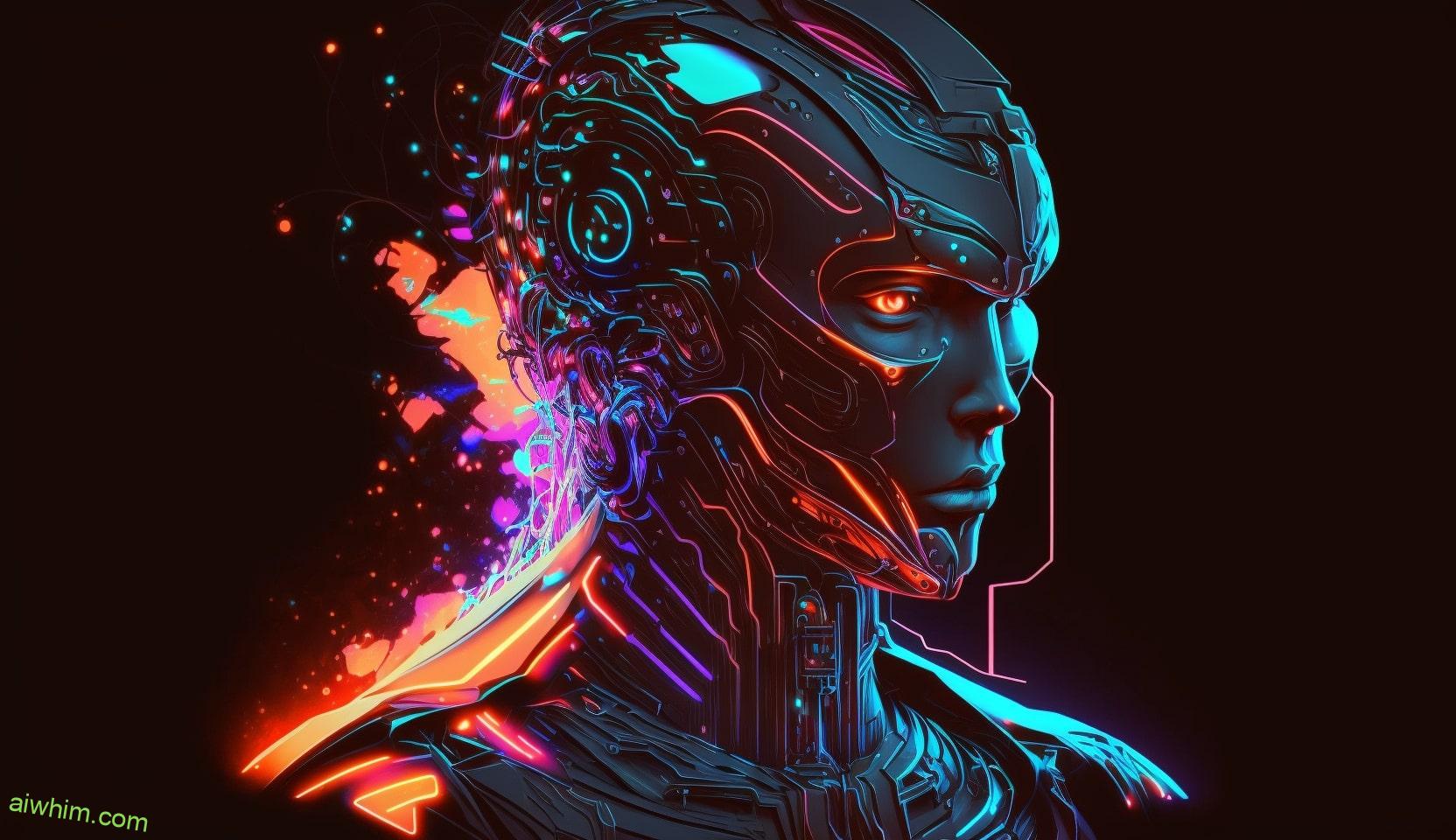
Conclusion
In conclusion, the integration of chatbots and AI in the field of psychology has sparked a significant transformation. These technological advancements have demonstrated promising potential in mental health support, treatment outcomes, and psychological assessment.
While some may fear the disruption it could bring to traditional therapy models, it is crucial to embrace the collaboration between chatbots and psychologists. The intelligent partnership between humans and technology offers an opportunity for enhanced therapeutic approaches and improved patient care.

